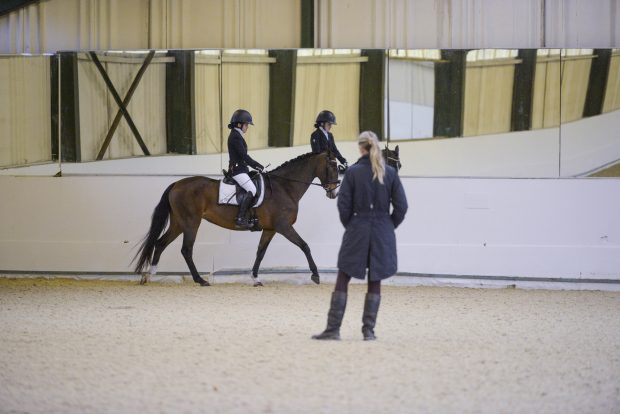View horses for sale
More articles on stable vices
Q: My horse was five-stage vetted, but turned out to be a windsucker. My vet said the horse has abnormal dental wear that should have been picked up at the pre-purchase vetting.
I have sent a case against the vet to the small claims court, but need to prove a windsucker is worth less than a horse without a stable vice, for financial recoup.
How do I do this?
WR, Merseyside
According to Professor Tim Greet of Rossdales Equine Hospital in Newmarket, an equine vet should be able to identify dental wear, and should note their findings on the veterinary report.
“However, abnormal wear can be subtle,” said Tim. “A pre-purchase vetting affords a rather limited opportunity for identification of stable vices. Worn or irregular incisor margins don’t necessarily indicate a horse is a windsucker and there are other reasons horses can wear incisor teeth irregularly.
“Even if the vet didn’t actually witness the horse windsucking, he should write on the report and discuss with the potential purchaser the finding of significant incisor irregularity.”
Warranty not included
Potential purchasers should be aware that in the Royal College of Veterinary Surgeons’ (RCVS) pre-purchase examination report, note three states: “If purchasers wish to obtain a warranty covering such matters as… freedom from vices… they are advised to seek such a warranty in writing from the vendor, as these are matters between vendor and purchaser and are not the responsibility of the veterinary surgeon.”
Independent witness
If a claim is to be made against another party, according to Stuart Farr of Laytons Solicitors, prior to issuing legal proceedings, it is invariably useful to obtain an independent veterinary expert report as well as a valuation report.
“These reports are often helpful in enabling parties to resolve their disputes without the need for legal proceedings,” he said. “Otherwise, they should provide assistance and explanation to the court regarding the technical aspects of the issues in dispute, while providing an impartial opinion on the animal’s condition, prognosis and any loss of value.
“Valuation evidence generally needs to focus on the difference between the price you paid and what it was actually worth at the time of the purchase – vets may naturally feel uncomfortable about giving expert opinions on value. A reputable horse dealer may be able to assist, particularly as they may be able to source suitable comparisons of similar sales on the open market, in order to substantiate their professional opinions.”
Information
Laytons Solicitors, tel: 0161 834 2100 www.laytons.com
This Q&A was first published in Horse & Hound (7 May, ’09)
Find horses for sale near you
Looking for more articles on stable vices?
Buying a new horse? Compare insurance prices at horseandhound.co.uk/insurance




